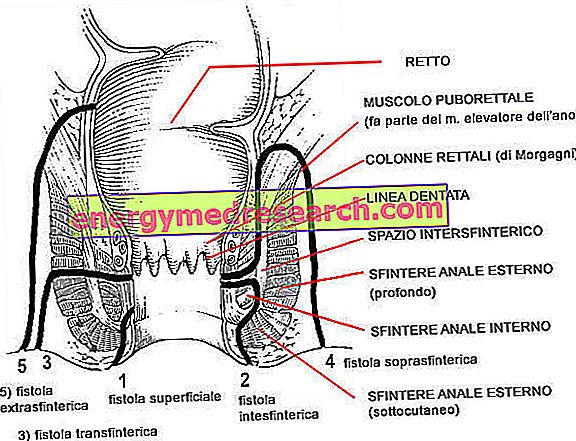Definition
Hypoesthesia is a decrease in normal sensitivity to some external stimuli (tactile, thermal or painful) applied to the body surface. This manifestation can be total (ie it affects all types of superficial sensitivity) or partial / dissociated (one or more forms of sensitivity are normal, while the others, in the same area, are compromised).
Hypoesthesia can affect every part of the body. In addition to the reduced ability to perceive certain stimuli, the patient can also manifest a temporary or permanent loss of muscular strength.
Usually, the cause of hypoesthesia is to be found in the presence of lesions affecting both the central and peripheral nervous system. This manifestation can develop, therefore, in the case of some lesions against the thalamus and pathologies affecting the spinal column and spinal cord (eg syringomyelia and medullary tumors).
Hypoesthesia can be seen in cases of transient ischemic attack, aneurysm, cerebral ischemia and De Quervain syndrome. Furthermore, it can be associated with trauma, leprosy, shingles, multiple sclerosis, burns and decompression syndrome.
The hypoesthesia for peripheral nerve causes manifests itself, instead, in the lesions of one or more nerves (neuropathies) of the sensory ganglia or of the nerve pathways that conduct the impulses of sensitivity. In these cases, it can also be associated with disorders of motility and muscular trophism.
Hypoesthesia can also be caused by the effect of anesthetic drugs or the outcome of surgical procedures.Possible Causes * of Hypoesthesia
- Alcoholism
- Brain aneurysm
- Transient ischemic attack
- Autism
- Binge drinking
- Herpes simplex keratitis
- Strike of the Witch
- Fire of saint Anthony
- Respiratory failure
- Cerebral ischemia
- Leprosy
- Dislocation
- Meningioma
- Myelitis
- myelopathy
- Acoustic neurinoma
- Neurofibromatosis
- Morton's neuroma
- Diabetic neuropathy
- radiculopathy
- Multiple sclerosis
- Syphilis
- Decompression syndrome
- Mouth Urente syndrome
- Cauda Equina syndrome
- Thoracic outlet syndrome
- Asperger syndrome
- De Quervain syndrome
- Syringomyelia
- Spina bifida
- Cervical spondylosis
- Cervical stenosis
- Lumbar Stenosis
- Spinal stenosis
- Spinal cord tumors
- Burns



